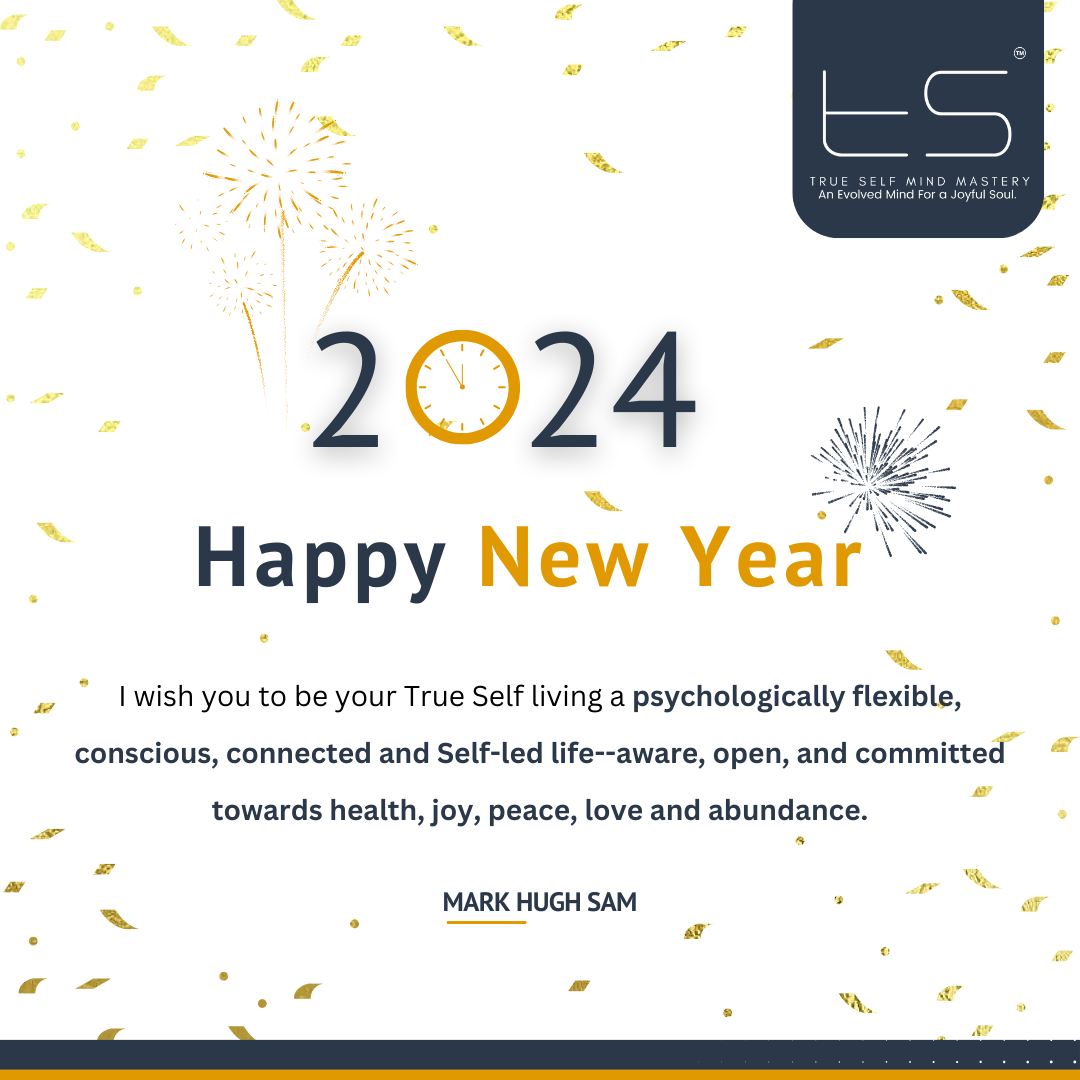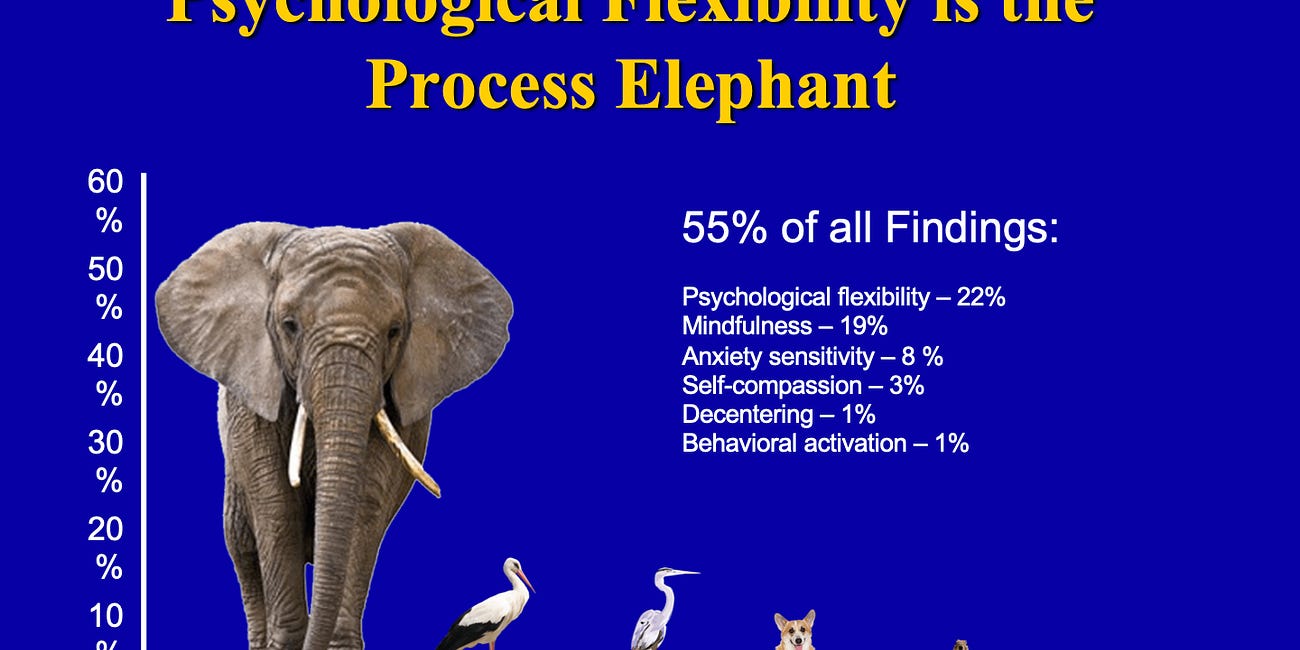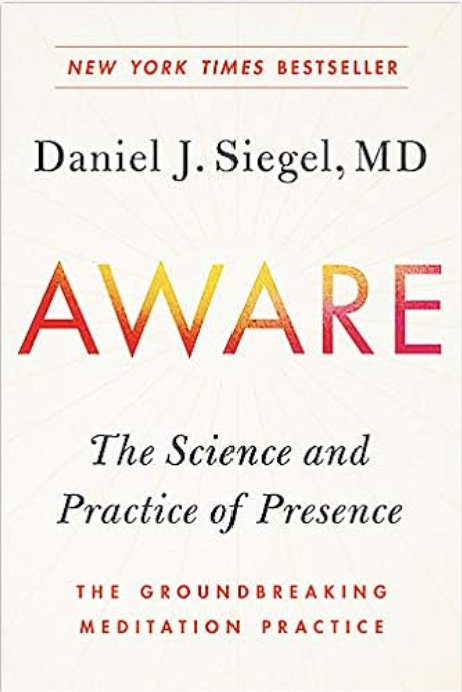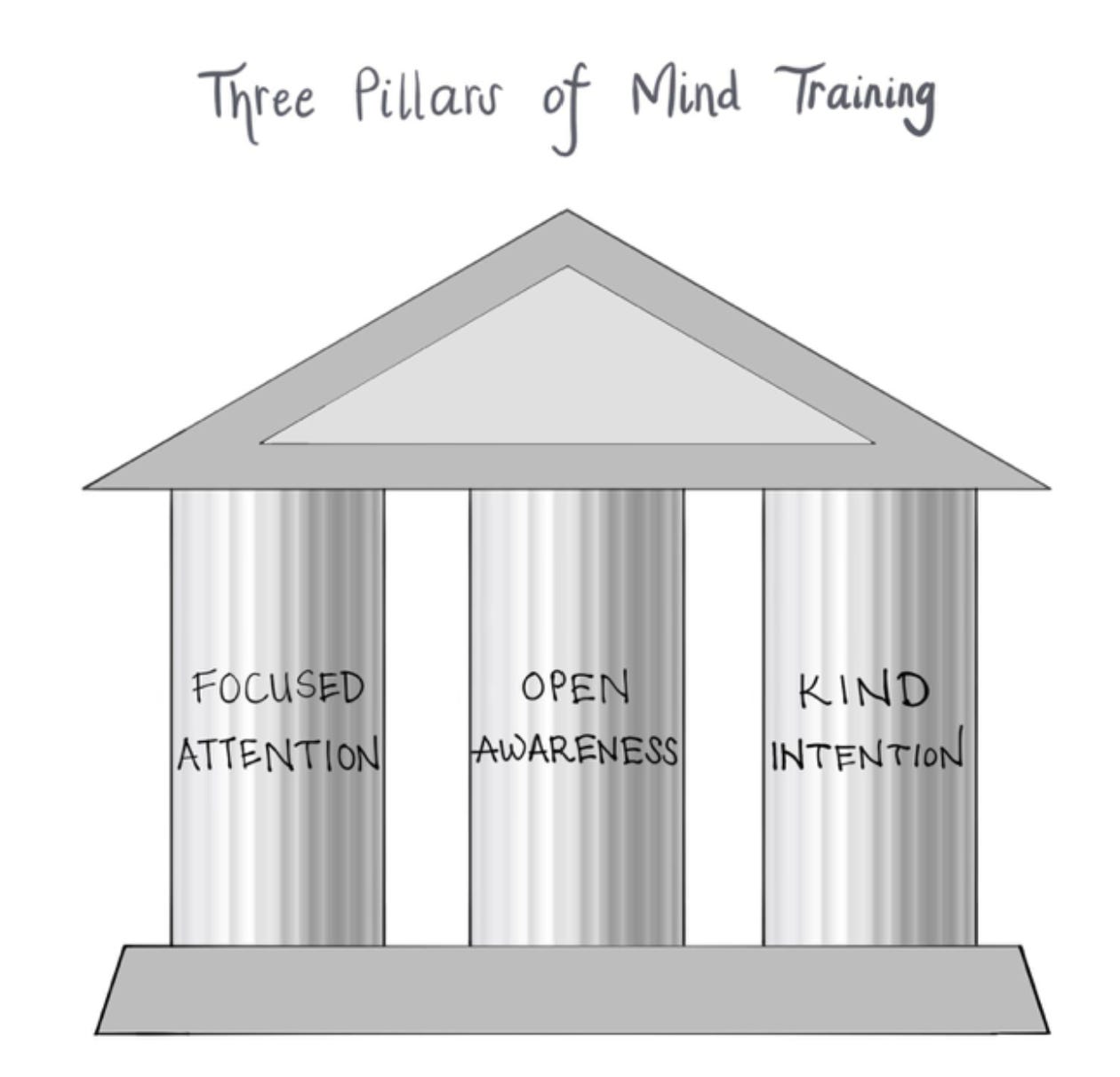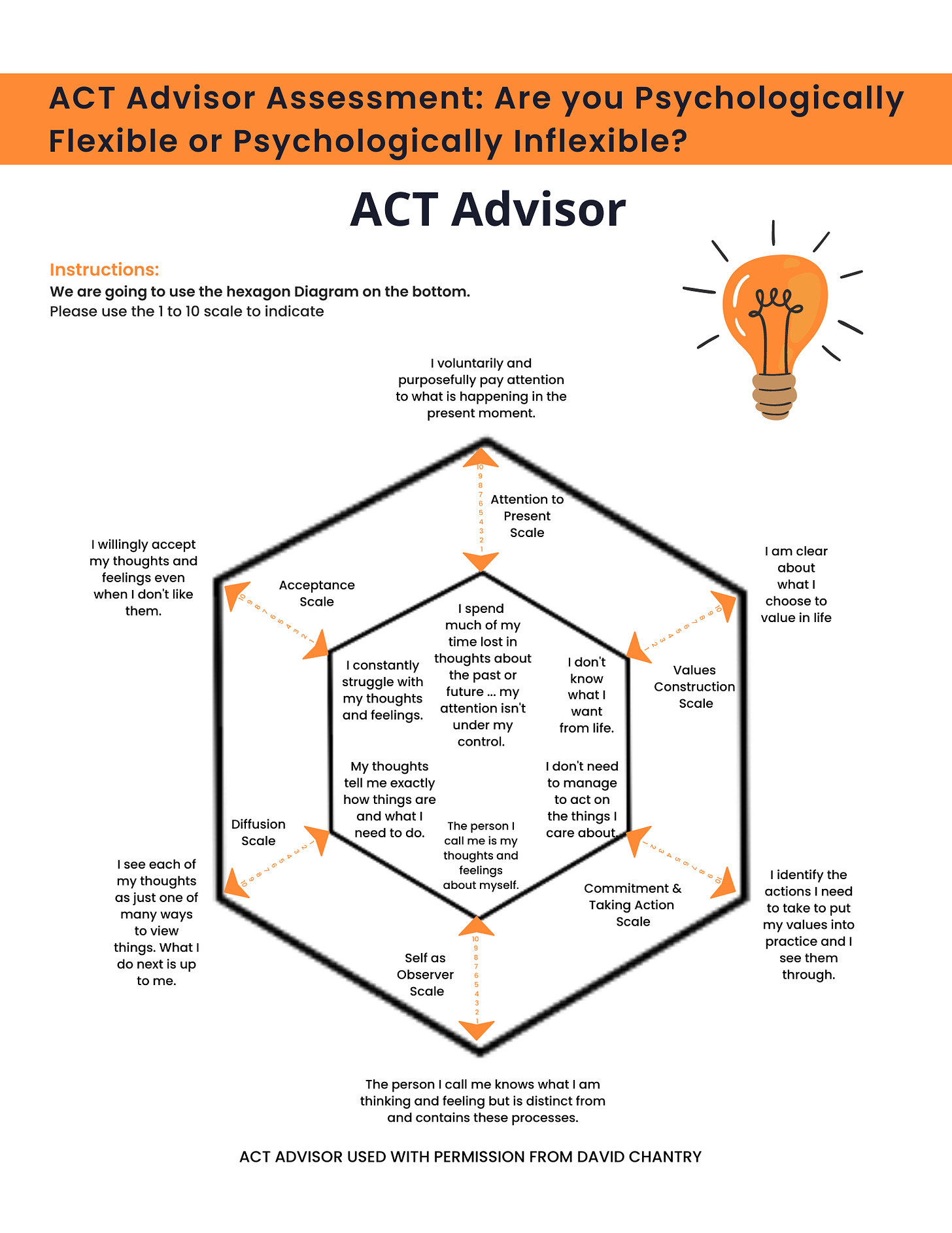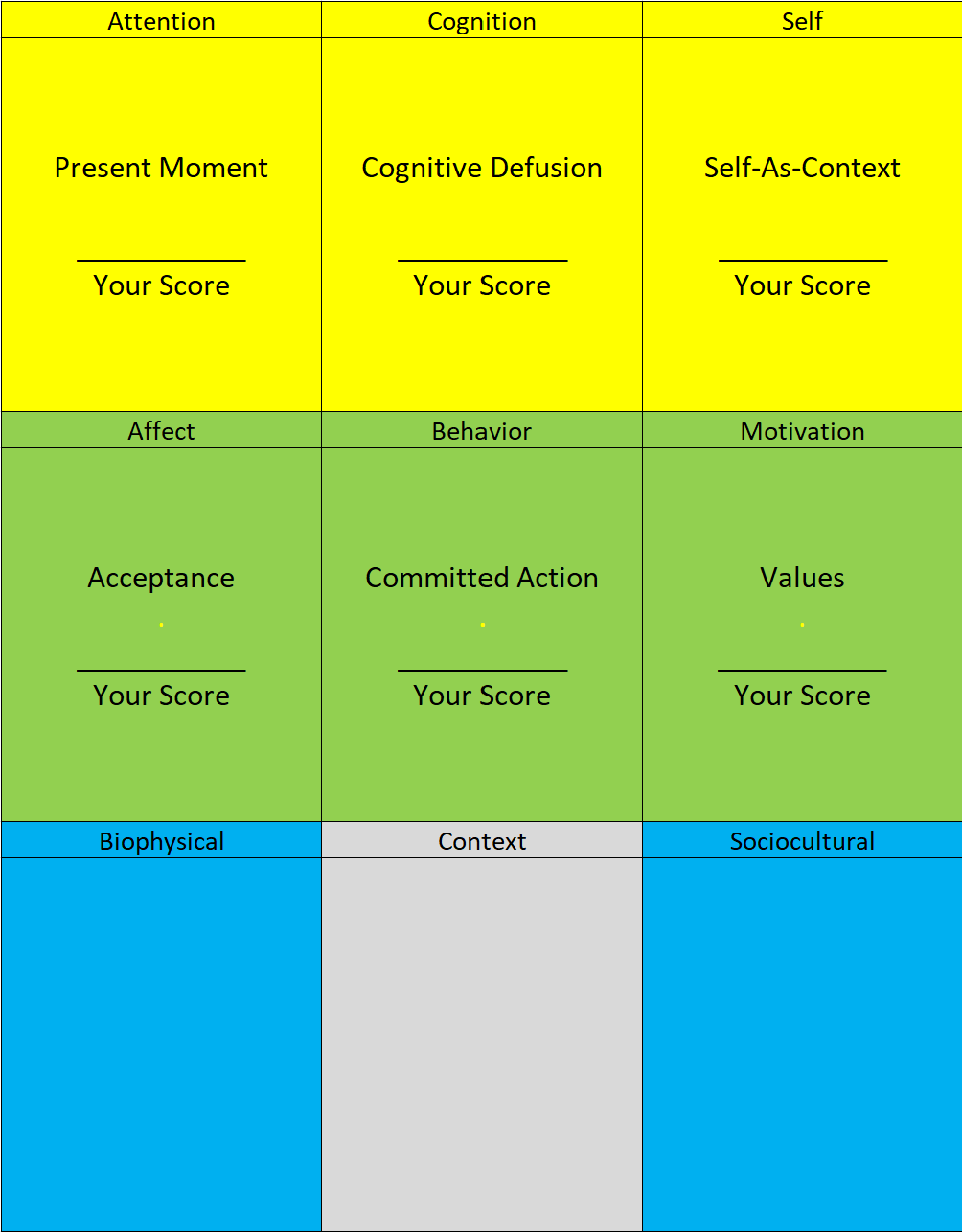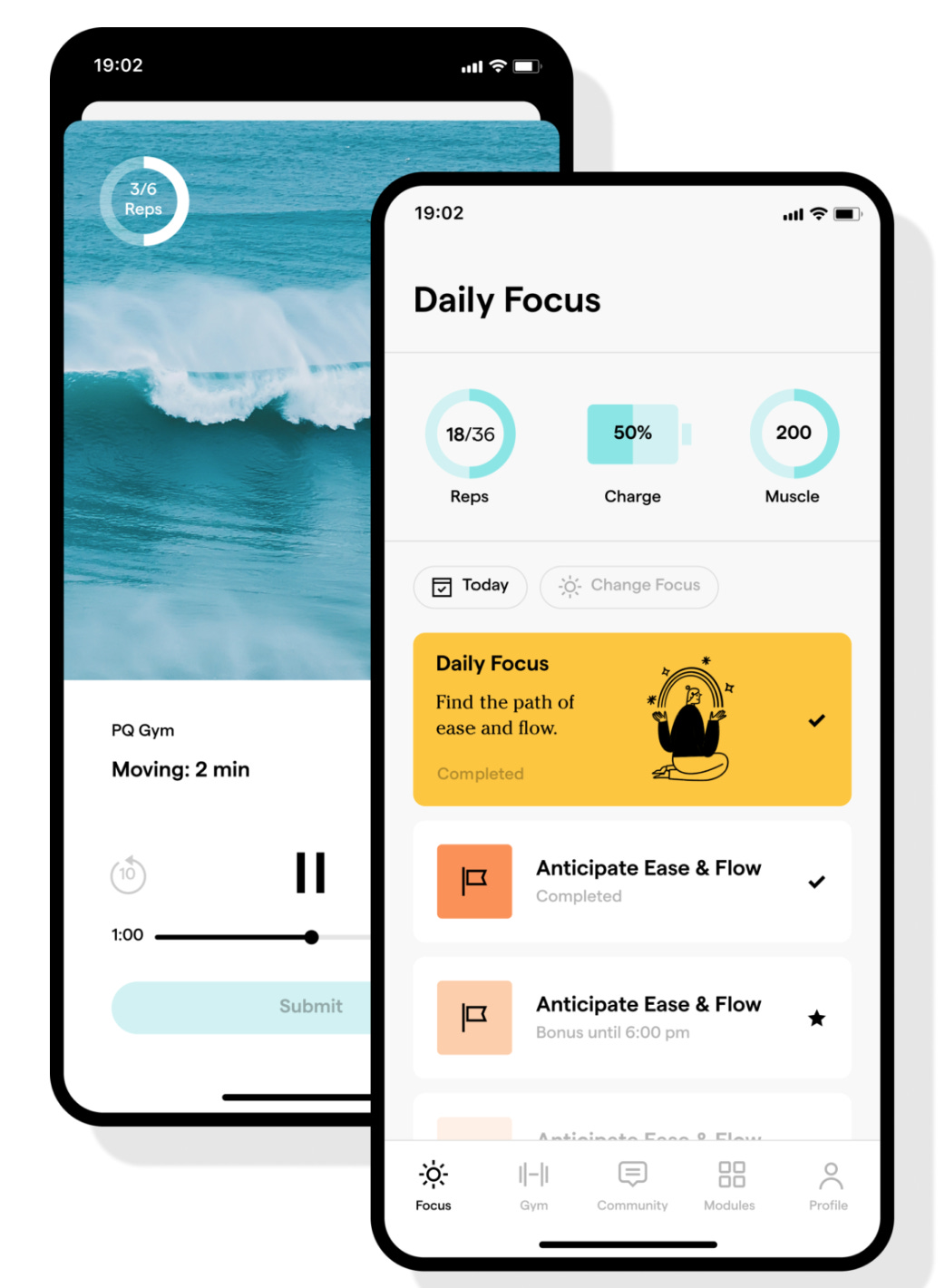BN#58 How to Train Your Mindfulness and Your Mind
5 Recommended Ways and Why Most Meditations are Not Enough
A mind that is stretched to a new idea never returns to its original dimension.
Oliver Wendel Holmes
When I woke up this morning in Chiang Mai (it was in August 2023 when I began writing this article—and some friends in Pai, Thailand asked me about mindfulness earlier during the week), I deliberately decided not to check my phone and see what effect that would have on my mindfulness this morning—hugely more productive in creativity and output. As I was doing my morning walk, I began to think more about awareness (I use awareness interchangeably for mindfulness) and realized that it is actually a more multi-dimensional topic than at first glance.
Highlights of Today’s Article
Mindfulness is more than the 5 senses.
I believe awareness is the most important component of psychological flexibility to learn.
I believe there are 4 components of Mindfulness/Awareness that we need to train:
a. Attention
b. Intention
c. Self-As-Context—Awareness of Awareness
d. Compassion.
I think that most people do not train in these 4 components and most meditation downloaded for free only train attention. When you add to these components openness i.e. acceptance and cognitive diffusion, you get the 3 pillars of Daniel Siegel’s Mind Training: Focused attention, open awareness, and kind intention. Therefore, I highly recommend some form of mindfulness or mind training program versus just downloading meditations.
The 5 programs that I have done and I would recommend are:
a) Positive Intelligence Program (PQ Reps)
b) Mindful Self-Compassion (Kristen Neff et al)
c) Daniel Siegel’s Wheel of Awareness
d) formal meditation or mindfulness training (Buddhist, Mindfulness-Based Stress Reduction (MBSR) etc.)—Note a MBSR course for my friends is beginning Jan 27, 2024.
e) Chopra Oprah Meditations - for spiritually focused mind development
There are several assessments you can do to determine the kinds and how much mind or brain training you need including Kristen Neff’s Mindful Self-Compassion, ACT Advisor, PQ Saboteurs, and PQ Score.
An 8-week Comprehensive and Extensive Mindfulness-Based Stress Reduction Course
Based on the science of stress reduction!
I'm SUPER excited to explore mindfulness through MBSR. I have asked a friend Hashim Hashim to run a program for myself and my friends.
The program will run for 8-weeks on Saturdays @ 8 AM ET from Jan 27th - Mar 23rd, 2024.
Full Day Retreat - Sunday Mar 10th, 6 AM - 1:30 PM ET
(Jan 27th is a shorter orientation class ahead of the main 8-week program
This is a science-based mindfulness program that has been meticulously designed to support adult learning.
It is divided into eight 2.5-hour sessions with live teaching, group practice, and home practice so you can integrate mindfulness into your daily life. (This will also help you bridge the knowing/doing gap we all experience.
Program Details:
The program is validated through more than 1500 research papers running for over 4 decades and has been consistently shown to positively impact participants' lives:
🧠 Higher capacity to manage anxiety and stress
🧠 Increased presence for improved quality of life
🧠 Better sleep and higher focus
🧠 Reduced anxiety
🧠 Increased levels of autonomy, and
🧠 Ability to form deeper connections...
Enrol HERE Cost US$150 to $300 (pay what you can)
More Info Here: https://supersunday.ck.page/6a1eb5fed0 or give me a call/email.
Awareness is More Than Our 5 Senses
Our awareness on the first level takes place through our 5 senses—sensations:
sight
sound
smell
taste
touch
However, we have other senses such as:
interoception (awareness of what is happening internally inside of your body—hunger, thirst, fast beating heart)
exteroception (close your eyes and you still have a sense that the walls are 6 feet from you)
proprioception (have you turned upside down or sitting or standing)
Then we also have feelings (works with a combination of the above senses?)
feelings (glad, sad, mad, scared, etc.)
We also have thoughts and images (our monkey mind/ego?—the default mode network?)
thoughts (our monkey mind?)
images in our head (our monkey mind?)
Then we take an important leap and have awareness of our awareness (self-as-context, True Self, Observer Self)
awareness of our awareness (who is watching your thoughts or sensations?)
Mindfulness is the Most Important Part of Psychological Flexibility
The Death Star Project, which was probably the largest meta-study ever done in psychology, resulted in the graphic below. It shows that psychological flexibility is the most important reason why people change. I reported on this study in BN#50.
Mindfulness was 19% or the second largest component of psychological flexibility. While it may be the second largest component as defined in the graph below, if we add self-compassion, which is a result of self-as-context, and other things like de-centering, anxiety sensitivity, etc. We can see mindfulness is actually the largest component.
Being Present and Self-as-Context are Two Components of Awareness in ACT
In Acceptance and Commitment Therapy (ACT), mindfulness (also called awareness or Centered) is composed of two components: Present Moment Attention and Self-as-Context (Observer or True Self). This is a very important distinction. Essentially “Being Present” refers to the use of the first 11 “senses”, and the 12th, awareness of awareness i.e. self-as-context is so important, it was given its own component.
“There is nothing more important to true growth than realizing that you are not the voice of the mind—you are the one who hears it. If you don’t understand this, you will try to figure out which of the many things the voice says is really you. People go through so many changes in the name of “trying to find myself.” They want to discover which of these voices, which of these aspects of their personality, is who they really are. The answer is simple: none of them.”
Michael Singer in The Untethered Soul: The Journey to Beyond Yourself
I have discussed in other articles that being your True Self is THE most important skill needed to create change (For e.g. Discovering My True Self Changed Everything For Me here). Self-as-Context or True Self goes beyond awareness of awareness.
“The “hexaflex” concept in Acceptance and Commitment Therapy (ACT). The six core processes of ACT are listed at the six corners of the hexagon. The four processes on the left are taken to be mindfulness and acceptance processes; the four on the right are commitment and behavior change or behavioral activation processes. All six working together are “psychological flexibility.” Pairs of processes can be grouped into the response styles Open, Centered, and Engaged. This figure is a combination of the Figs. 3.2 and 3.3 in Hayes et al. (2012)”
Journal of Neural Transmission, June 1, 2022, in an article by Dijkstra, Johannes and Nagatsu, Tshiharu)
Components of Mindfulness
I believe there are 4 components of Mindfulness/Awareness that we need to train:
a. Attention
b. Intention
c. Self-As-Context—Awareness of Awareness
d. Compassion.
Attention versus Intention
If clicking on the video does not work, try the link here.
The above video was made for kids like me (lol). It explains the concepts of attention and intention really well. I first learned about attention while doing a mindfulness course a friend sent to me (since forgotten the name of the course). I just remember the aha moment of knowing that like a flashlight, I could control my attention. Later, while doing the Wheel of Awareness (see below), I learned to separate my attention and intention. I highly recommend you do at least once, the Wheel of Awareness to experience the range of attention versus intention.
Here is a quick example of attention versus intention. Take a look around the space you are in for all the things that are blue. Now change your intention to listen to the sound closest to you. Focus your attention on the sound—how loud is it, what is the pitch of the sound? Now change your intention to listen to the sound furthest to you. Focus your attention on the sound furthest from you. What is causing the sound? How loud is the sound? Now change your intention to focus on any smells. Focus your attention and notice what is the smell. You can continue to change your intention and attention.
Three Pillars of Mind Training
I think that most people do not train in these 4 components and most meditation downloaded for free only train attention.
When you add to these components to openness i.e. acceptance and cognitive diffusion, you get the 3 pillars of Daniel Siegel’s Mind Training: Focused attention, open awareness, and kind intention.
Therefore, I highly recommend some form of mindfulness or mind training program versus just downloading meditations.
Assessments to Determine if you need Mindfulness or Brain Training
“You can’t really know where you are going until you know where you have been.” Maya Angelou
ACT Advisor
The ACT Advisor because it measures psychological flexibility is a good start in determining your braining training needs.
To determine your awareness, you need to look at both the Present Moment and Self-as-Context scores.
To determine your openness, you need to look at both Cognitive Defusion and Acceptance scores.
ACT Advisor does not have a measure of “kindness”, so it is good to combine it with Kristen Neff’s Self-Compassion score (see below).
Many successful people like Financial Planners and Entrepreneurs score high in the committed action and values sections, and poorly in the awareness and openness scores. This normally shows up externally in poor family relationships and anxiety.
Self-Compassion Assessment
https://self-compassion.org/self-compassion-test/
Kristen’s Neff’s Self-Compassion Test is my go-to test to determine kindness to oneself. While it does not reflect on your kindness to others, it is a good barometer for how we treat ourselves, and if we are treating others more kindly, that may be an indication of our Pleaser Saboteur.
PQ Saboteur and PQ Score
Below is taken from PQ Website. Note that the PQ Saboteurs test is a way of determining cognitive fusion and PQ is a more rounded score.
PQ Score is the measure of your mental fitness.
https://assessment.positiveintelligence.com/pq/definition
If you’re physically fit, you can climb steep hills without physical stress. Similarly, If you’re mentally fit, you can handle life’s great challenges without mental stress, frustration, or other negative emotions.
PQ reveals your mental fitness level by measuring the strength of your positive mental muscles versus the negative.
PQ Saboteurs are the voices in your head that generate negative emotions in the way you handle life’s everyday challenges.
https://assessment.positiveintelligence.com/saboteur/overview
Saboteurs are the voices in your head that generate negative emotions in the way you handle life’s everyday challenges. They represent automated patterns in your mind for how to think, feel, and respond. They cause all of your stress, anxiety, self-doubt, frustration, restlessness, and unhappiness. They sabotage your performance, well-being, and relationships.
Mindfulness Programs Recommended
“Those who have climbed this mountain come from different cultures and have different personalities, but they all seem alike to me in seven ways. They are mindful; they are kind; they live with contentment and emotional balance through even the hardest times; they are whole and authentic; they are present here and now; they speak of feeling connected with everything; and a light shines through them that does not seem entirely their own.” Rick Hanson, NeuroDharma
Rick Hanson notes that those who have already climbed the mountain path to awakening to a higher consciousness have left a pathway for us. Note the first 5 are similar to the 3 attributes of Siegel’s 3 Pillars of Mind Training. I think the last 2—feeling connected with everything and have a light shining through them are more aspects of the Transcendent Self (Self-as-Context but beyond) as defined by Steven Hayes and require more spiritually-focused mind training (like the Chopra-Oprah meditations mentioned below).
The 5 programs that I have done and I would recommend are:
a) Positive Intelligence Program (PQ Reps) - This is used in my True Self Mind Mastery Program
b) Mindful Self-Compassion (Kristen Neff et al)
c) Daniel Siegel’s Wheel of Awareness
d) Formal meditation or mindfulness training (Buddhist, Mindfulness-Based Stress Reduction (MBSR) etc.)
e) Chopra-Oprah Meditations
a) Positive Intelligence Program (PQ Reps)
Positive Intelligence (PQ) is more than a mindfulness program. It is an entire app-based program that in 6 weeks, 15 minutes per day rewires the neuro-circuits of your mind and creates lasting change.
In addition to “mindfulness” training, it really helps to focus on learning how we sabotage ourselves (by introducing the concepts of our mind consisting of multiple parts), and how we can shift the focus of our minds from negativity to positivity.
I believe this is by far the best mental fitness training program in the market today.
I am a PQ Coach and therefore 100% biased. My clients have tried it and live by it, even those who previously “meditated” have switched to some form of PQ Reps also or totally.
The only drawback is that it costs US$995 for the full program. I (and others) offer scholarships for those who want to take the program but cannot afford it (just write to me at mark@trueselfmindmastery.com for more details about the program and scholarship).
Most of the following about PQ is taken from their website at https://www.positiveintelligence.com/program/
App-Based Advantages
Daily Practice
15 minutes/day of app-guided practice enables you to build stronger mental muscles (neural pathways). These exercises are bite-sized to fit your busy schedule and customized based on how you self-sabotage.
Weekly Focus
Weekly hour-long video delivers a deep experiential exploration of the week’s focus. You’ll feel inspired and energized to practice during the week in order to sustain the benefits experienced during the video sessions.
Measurable Progress
You’ll feel motivated through instant feedback on exactly how much progress you’re making toward building the 3 core muscles of mental fitness. Brain rewiring may be visible in MRI imaging within 8 weeks.
Community Support
We help you establish a support and accountability group with other program participants. Research has shown this to be a critical success factor for establishing lasting new positive habits of the mind.
6-Week Foundation
PQ builds your foundation of mental fitness by strengthening three critical mental muscles to shift the balance of power from your inner Saboteurs (your negative self) to your inner Sage (your positive self).
Week 1
Self-Command Muscle (equivalent to Siegel’s Focused Attention)
Through a breakthrough process called PQ Reps, you get to boost your Self-Command muscle. Each PQ Rep only takes 10 seconds and can be done with eyes open or closed. With each PQ Rep, you develop greater mastery over your own mind, quiet the negative, and activate the positive region of your brain.
Week 2-3
Saboteur Interceptor Muscle (equivalent to Siegel’s Openness—and goes beyond)
You get to intercept your top Saboteurs the moment they try to hijack your thoughts, feelings, and actions. In preparation for this practice, you get to expose the lies, limiting beliefs and damage of your Saboteurs, so they can no longer fool you into thinking they are helpful to you.
Week 4-6
Sage Muscle (equivalent to Siegel’s Kindness—and goes beyond)
You get to practice the Sage Perspective that every problem or challenge can be converted into a gift and opportunity. And you get to generate the gift through the 5 Sage Powers of Empathize, Explore, Innovate, Navigate, and Activate.
What Makes The PQ Program Different
Focus on Habit Formation
Most trainings result in short-lived improvements. For sustained results, we focus on building neural pathways that form lasting new habits. That’s why we call this “mental fitness”.
Treat Root Cause, not Symptoms
Our factor analysis research has revealed the foundational root-level enablers and disablers of optimal performance and wellbeing. We rewire the brain at the root cause level.
Develop all 3 Core Muscles
Mental fitness requires 3 core muscles. Saboteur Interceptor, Self-Command, and Sage (similar to the 3 pillars of Siegel’s Mind Training). Most meditations only focus on Self-Command (and only attention), which is why it is not sustained by most.
Research-Based, Measurable Results
Our research has included more than a million participants from around the globe. Our tools have been field-tested with thousands of tough-minded participants, ensuring their efficacy.
A Platform for Ongoing Growth
Similar to physical fitness, mental fitness is not a short-term training. After the initial six-week foundation, unlock a variety of work and life applications to continue your growth.
One Operating System, Many Applications
Through factor analysis, we’ve discovered the core operating system of the mind that can run a massive variety of work and life applications. One simple operating system, with many applications.
b) Mindful Self-Compassion (Kristen Neff et al)
Please go to Kristen Neff’s website at https://self-compassion.org/
There are many courses that Kristen Neff has now produced. There are many free meditations that you can complete. One of the things that cannot be duplicated by reading or other kinds of meditations is the “loving energy” of Kristen Neff herself. So Please try at least one of her self-compassionate meditations on her website.
Below is one of many of her courses—this one is sold through True Sounds—and the write-up is taken from a description of the course from the website.
https://product.soundstrue.com/the-power-of-self-compassion/?sq=1#a_aid=5e72797787486&a_bid=b0a769ce
Have you ever marveled at how some people manage to bounce right back from challenges in their lives, keep an optimistic attitude, motivate themselves to achieve lofty goals, and stay healthy and happy?
Chances are, there’s a secret ingredient in their lives: self-compassion.
What, exactly, is it?
In a nutshell, self-compassion is treating ourselves with the same kindness, care, and understanding that we would offer to others when they suffer, fail, or feel inadequate.
Hundreds of studies are pointing to self-compassion as one of the most powerful resources for enhancing emotional well-being.
And while we all have this capacity within us, too often we neglect to strengthen and use it when we’re struggling.
In fact, many first-time participants in our course are actually wary about being compassionate to themselves. Why?
Because we fear that being too kind to ourselves will make us weak or self-indulgent. Or that we need to be “tough” on ourselves to stay motivated and reach our goals.
In fact, research shows it’s just the opposite:
Self-compassion turns out to be much more effective than self-criticism—for success at work, health, personal relationships, and fulfillment of our aspirations.
Since 2010, we’ve tested and continually refined strategies to help people develop self-compassion as a habit—a natural strength that comes to our aid whenever we need it. And guess what? It works. In research studies and in real life.
With The Power of Self-Compassion online course, we’re thrilled to invite you to experience all the core essentials of our work, including live mentoring sessions guided by experienced mentors.
During eight immersive sessions, you’ll learn to:
Cultivate lovingkindness toward yourself
Face your pain with courage and acceptance
Understand the science of self-compassion
Motivate yourself with compassion rather than criticism
Bring your core values into fulfilling actions
Be resilient when faced with life's difficulties
Care for others without losing yourself
Feel more grateful and fulfilled every day
All of us have to deal with seemingly unbearable situations from time to time. Chances are, you already have.
It’s just part of the human condition.
And that’s when the miracle of self-compassion comes to the rescue: to help us meet our inevitable crises and transform our experience through mindful awareness, a sense of common humanity, and self-kindness.
c) Daniel Siegel’s Wheel of Awareness
We mentioned Daniel Siegel’s Book - Awareness and his Wheel of Awareness. The best is to try his meditations for free on his website.
https://drdansiegel.com/wheel-of-awareness/
I believe this is the best meditation to help those who want to understand the step-by-step 5 senses, interoception, then feelings and thoughts, and then awareness of awareness and lastly, sending compassion.
I highly recommend starting with the 30-minute meditation for the full effect. It is guided so it feels less than a 30-minute mantra-style meditation.
d) Formal meditation or mindfulness training
(Buddhist, Mindfulness-Based Stress Reduction (MBSR) etc.)
Buddhist Training
I have done Buddhist training meditations when I lived in Taiwan. I wrote about one of my experiences Meditating in Taipei.
https://markhughsam.substack.com/publish/posts/detail/99315?referrer=%2Fpublish%2Fposts
8-week comprehensive and extensive Minfulness-Based Stress Reduction Course
Based on the science of stress reduction!
MBRS is probably the most researched and science-based mindfulness program that has been meticulously designed to support adult learning.
It is divided into eight 2.5-hour sessions with live teaching, group practice, and home practice so you can integrate mindfulness into your daily life. This will also help you bridge the knowing/doing gap we all experience.
Program Details:
The program is validated through more than 1500 research papers running for over 4 decades and has been consistently shown to positively impact participants' lives:
🧠 Higher capacity to manage anxiety and stress
🧠 Increased presence for improved quality of life
🧠 Better sleep and higher focus
🧠 Reduced anxiety
🧠 Increased levels of autonomy, and
🧠 Ability to form deeper connections...
The cost is normally US$700. See the top of the article for a course running for US$150 starting Jan. 27, 2024.
e) Chopra-Oprah Meditations
The Chopra-Oprah Meditations are what I used to learn how to meditate in 2015/16 and what I still listen to almost every day first thing in the morning (I combine this with values affirmations and visualization).
I initially was not thinking of listing this as a mindfulness training program because it isn’t—it’s more of a series of meditations that builds the spiritual aspects of the True Self. I have probably learned more about how beliefs, gratitude, energy, and connection to something greater via these Meditations.
These are now called just Chopra Meditations because Oprah Winfrey is no longer involved in creating more of them. However, the 15 or so 21-day Meditation programs that she created with Deepak Chopra are still available at https://chopra.com/guided-meditations. Other meditations can be purchased for US$49.99 for each 21-day Meditation.




